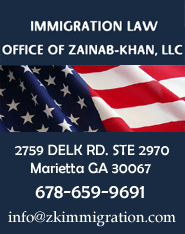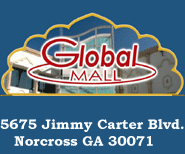|
|
|
|
|
|
Vancouver is a coastal city and major seaport located in the Lower Mainland of southwestern British Columbia, Canada. It is bounded by the Strait of Georgia, the Fraser River, the Coast Mountains, and the city of Burnaby. Vancouver is named after Captain George Vancouver, a British explorer.
The population of the city of Vancouver is 611,869 and the population of Metro Vancouver is 2,249,725 (2007 estimate). Vancouver is also part of the slightly larger Lower Mainland metropolitan area which compromises a total population of 2,524,113. This makes it the largest metropolitan area in Western Canada and the third largest in the country. Vancouver is ethnically diverse, with 52% of city residents and 43% of Metro residents having a first language other than English.
Vancouver was first settled in the 1860s as a result of immigration caused by the Fraser Canyon Gold Rush, particularly from the United States, although many immigrants did not remain after the rush. The city developed rapidly from a small lumber mill town into a metropolitan centre following the arrival of the transcontinental railway in 1887. The Port of Vancouver became internationally significant after the completion of the Panama Canal, which reduced freight rates in the 1920s and made it viable to ship export-bound prairie grain west through Vancouver. It has since become the busiest seaport in Canada, and exports more cargo than any other port in North America.
The economy of Vancouver has traditionally relied on British Columbia's resource sectors: forestry, mining, fishing and agriculture. It has diversified over time, however, and Vancouver today has a vibrant service industry, a growing tourism industry, and it has become the third-largest film production centre in North America after Los Angeles and New York City, earning it the nickname Hollywood North. Vancouver has had an expansion in high-tech industries, most notably video game development.
Vancouver is consistently ranked one of the three most livable cities in the world. According to a 2007 report by Mercer Human Resource Consulting for example, Vancouver tied with Vienna as having the third highest quality of living in the world, after Zürich and Geneva. In 2007, according to Forbes, Vancouver had the 6th most overpriced real estate market in the world and second in North America after Los Angeles. In 2007, Vancouver was ranked Canada's second most expensive city to live after Toronto and the 89th most expensive globally, and, in 2006, the 56th most expensive city in which to live among 143 major cities in the world. In 2007, Vancouver was ranked as the 10th cleanest city in the world. A resident of Vancouver is called a Vancouverite.
The 2010 Winter Olympics will be held in Vancouver and nearby Whistler
Archaeological records indicate that the presence of Aboriginal peoples in the Vancouver area dates back 4,500–9,000 years. The city is located in the traditional territories of Skwxwú7mesh, Xwméthkwyiem, Tseil-waututh peoples of the Coast Salish group. They had villages in parts of present-day Vancouver, such as Stanley Park, False Creek, and along the Burrard Inlet. Some of these still exist in North Vancouver, West Vancouver, and near Point Grey.
The first European to explore the coastline of present-day Point Grey and part of Burrard Inlet was José María Narváez of Spain, in 1791. George Vancouver explored the inner harbour of Burrard Inlet in 1792 and gave various places British names.
The original vegetation of most of Vancouver and its suburbs was dense temperate rain forest, consisting of conifers with scattered pockets of maple and alder, as well as large areas of swampland (even in upland areas, due to poor drainage).
Notable buildings within the city include Christ Church Cathedral, the Hotel Vancouver, and the Vancouver Art Gallery. There are several striking modern buildings in the downtown area, including the Harbour Centre, Vancouver Law Courts and surrounding plaza known as Robson Square (Arthur Erickson) and the Vancouver Library Square (Moshe Safdie, architect), reminiscent of the Colosseum in Rome.
The original BC Hydro headquarters building at Nelson and Burrard Streets is a modernist high-rise, now converted into the Electra condominiums. Also notable is the "concrete waffle" of the MacMillan-Bloedel building on the north-east corner of the Georgia and Thurlow intersection. A prominent addition to the city's landscape is the giant tent-frame Canada Place, the former Canada Pavilion from Expo '86, which includes the Trade and Convention Centre as well as a Cruise Ship Terminal and the Pan-Pacific Hotel. Two modern skyscrapers that define the skyline looking south are the city hall and the Centennial Pavilion of Vancouver Hospital, both by Townley and Matheson (1936 and 1958 respectively).
|
|
|




|
|
|
|
|